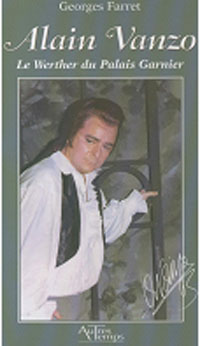
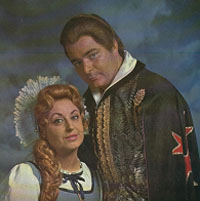
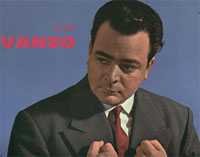
ALAIN VANZO
Le Werther du Palais Garnier
By Georges Farret
275 pp. Editions Autres Temps 2007



In 2005 the same author and publisher gave us a book called: “Rita Gorr & Ernest Blanc; Les Telramund de Bayreuth”. The Flemish mezzo and the French baritone deserved a good biography but I couldn’t say I was disillusioned when I read the result. Sergio Segalini, former editor of Opéra International, time and time again regretted the fact that French biographies were written by adoring fans without doing any real research, without any insight or criticism; just praying at the altar of their vocal gods who invariably kept their voices in pristine condition till the last days of their singing days. Mr. Farret’s book corresponded to this kind of biography.
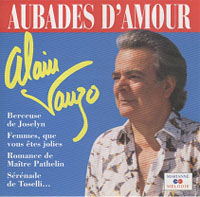
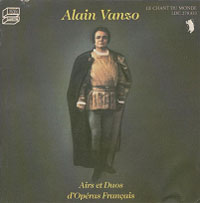
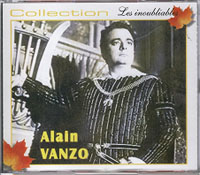
Therefore I picked up his latest opus with some trepidation. Let’s say it is marginally better. It has a good discography which seems to be complete as far as official and pirate issues which have appeared on LP and CD are concerned. There is for understandable reasons no attempt made at listing pirate recordings which up to now have not made it on CD. And there is logic in the madness though madness it remains. Instead of listing the recordings chronologically which would have given us an idea of the tenor’s recording career, the neglect during many years and his late resurrection, we get lists by recital and by composer. Much to my surprise Vanzo was very often on TV (as proven by many interesting photographs in the richly illustrated book) and what a pity it is there is no attempt at including a DVD (nor is there one elsewhere available at the moment; a shame). A chronological list of possible video moments is lacking too. The chronology of his theatre performances is interesting though probably far from complete. I know of several performances in Flanders and Wallonia not mentioned. The many gaps in the chronology, often of a month and more, point more to a lack of seriousness by the author than to Mr. Vanzo having no engagements.
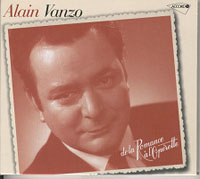
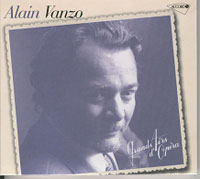

As to the book itself I have a few reservations as well. Do no expect Mr. Farret to describe Vanzo’s voice, style and technique in detail (luckily there are some excellent reviews quoted). There is no discussion of the evolution in the voice colour which was quite marked. We don’t even get an idea how small or large the voice was (definitely not small; though sweet and lyric it projected well and could easily fill the house; somewhat similar with nowadays Joseph Calleja’s qualities). After telling us some interesting stories on Fernand (his real Christian name) Vanzo’s youth and musical education (almost none with the exception of one voice teacher) the author sails on in his own idiosyncratic way of covering a career: by role. Therefore we start each tedious time at the same point (salle Favart or salle Garnier) and then often follow the same route. Luckily there are some interesting tidbits along the road which more or less explain the fact why Vanzo’s career didn’t take the flight his vocal means deserved. Vanzo belonged to that last generation of French singers who learned all their roles in the vernacular and who had a career limiting most of their performances to their own country. The tenor didn’t need to learn foreign languages (though the son of an Italian he couldn’t speak the language) and therefore was somewhat handicapped in the rat race when the old regime folded up in Paris in 1972; replaced by the international stagione system which mostly put fine French singers into the dust bin. Not that everything was so wonderful in the old days. Witness the horror stories told by some singers on the sloppiness of productions or the crookedness of the Paris orchestra (half the musicians went on sick leave in January each year, returning unashamedly bronzed from their ski holidays). Still some mystery surrounds the career of Vanzo. After all he was Caballé’s leading man in that legendary Lucrezia Borgia which made her a world star; proving at least he could sing in Italian. Was his handicap the fact he detested Mozart for whose music his voice was admirably suited ? But he found Mozart utterly boring and refused singing him after having gone through that ordeal at the beginning of his career ?
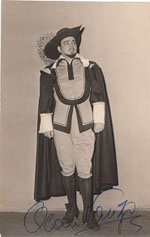
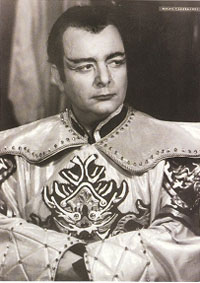
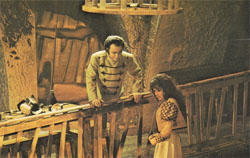
Were his financial demands too high ? We don’t know as the author never gives even one single figure. Did he demand to sing roles his voice was unsuited to in the opinion of theatre general managers ? Former soprano Mady Mesplé reminds us she and Vanzo’s wife were always telling the tenor to stop thinking of tackling Radames and Calaf. Or was it his probable hatred of “Regie-Theater” with its bloated pretensions ? He was unwilling to rehearse more than a week. Interesting asides which are never really followed up by the author. Or was it Vanzo’s profound love for operetta, so despised by the nitwits in power at the big theatres ? Anyway, his most representative role in more than ten years was his splendid Sou-Chong in Lehar’s Le Pays du Sourire. Farret even doesn’t notice this though the complete recording of 1971 is a marvel.
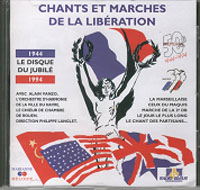
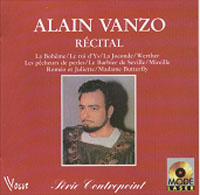
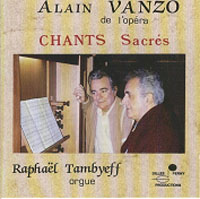
The author is somewhat better when analyzing Vanzo’s own compositions: his operetta Pêcheur d’Etoiles and his opera Les Chouans; melodic and old-fashioned in style and immediately discarded after the tenor’s farewell to the stage. Of course when reading this chapter one longs more than ever for an accompanying CD. In short if you are interested in this paragon of a tenor, you will be frustrated and at the same a little bit happy at the same time when reading this book which nevertheless fills a gap for the moment. There is a sad epilogue to it though there is no word to be found in the author’s biography. Shortly before or just after finishing the manuscript, for reasons unknown to me, Mr. Farret committed suicide.
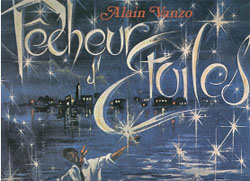

Jan Neckers, Operanostalgia